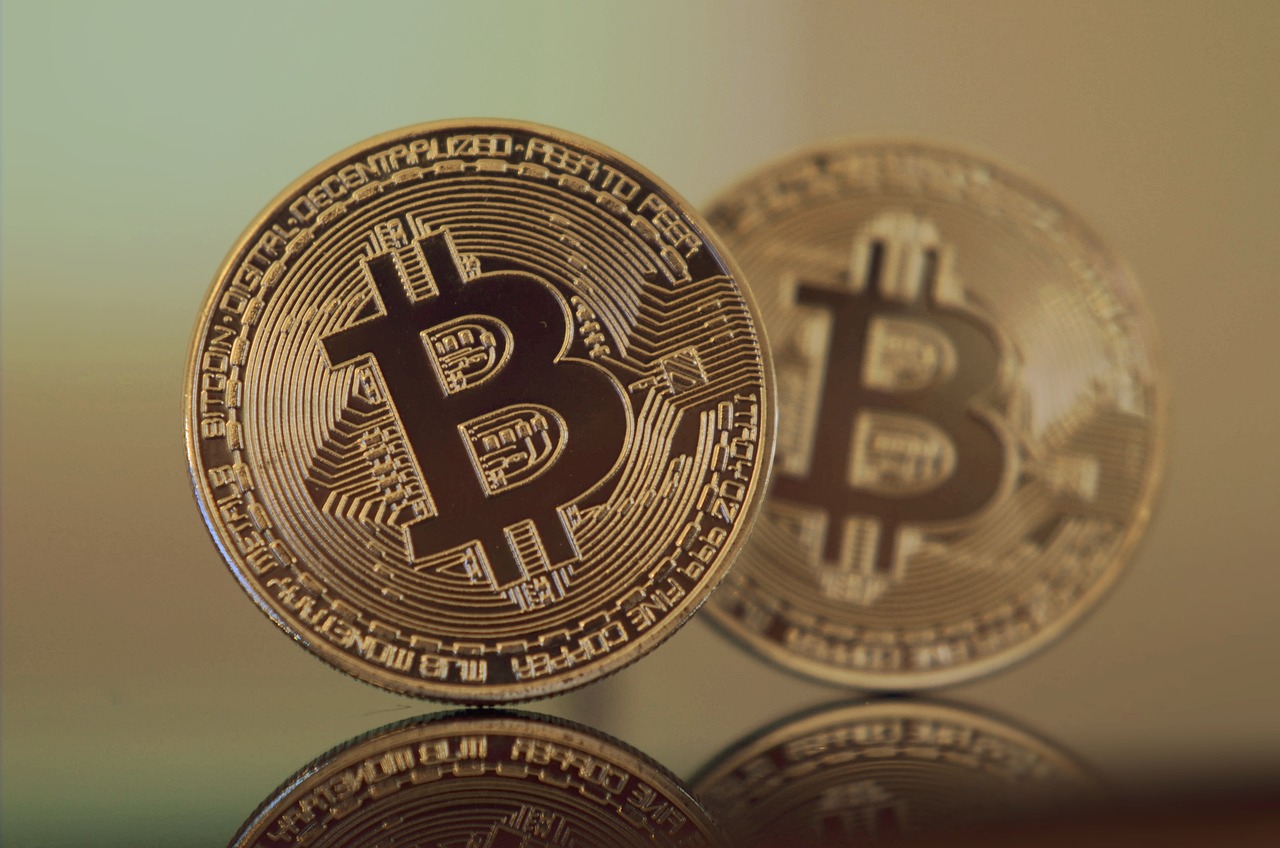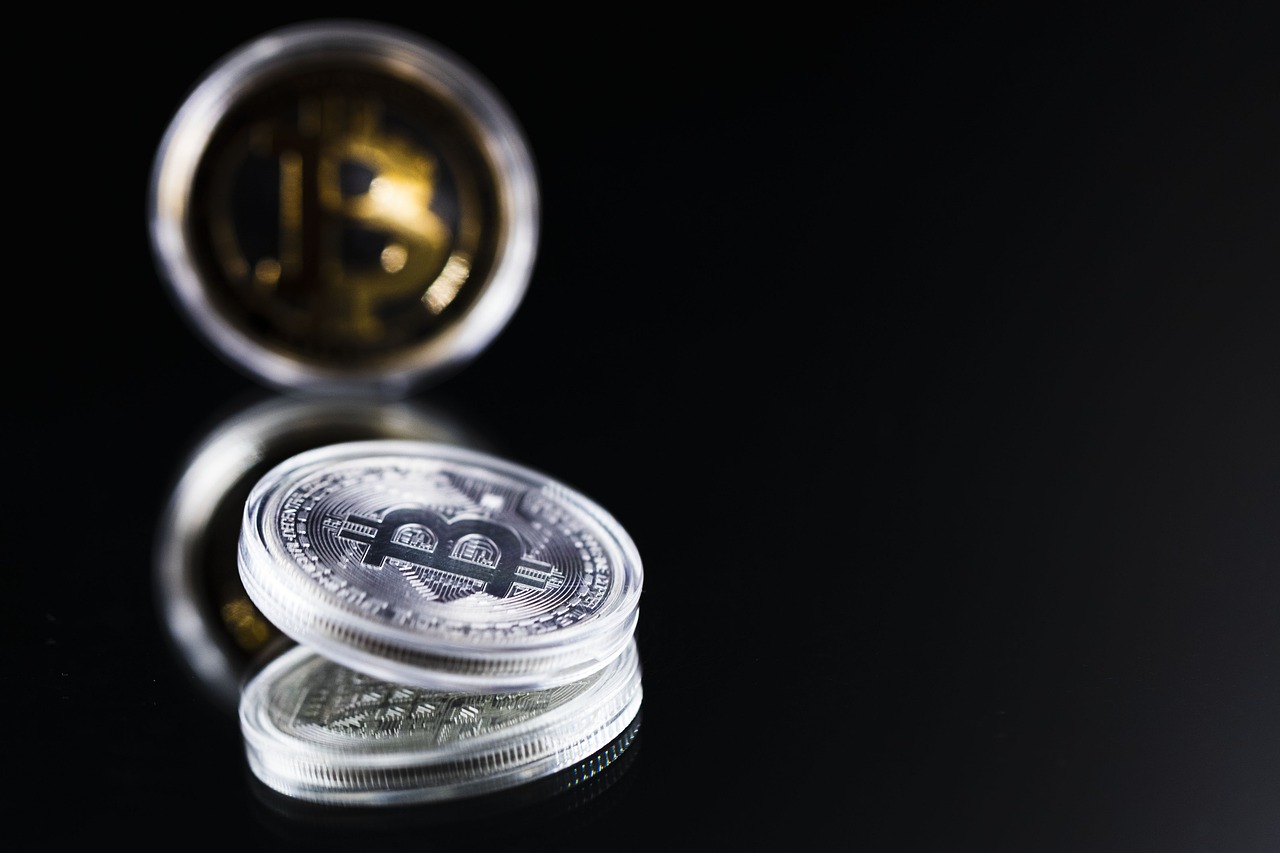The Role of Blockchain in Sustainable Supply Chains
As businesses increasingly prioritize sustainability, the need for transparent and efficient supply chains has never been more critical. Enter blockchain technology, a game-changer that is revolutionizing how companies operate. Imagine a world where every product's journey—from raw materials to the end consumer—is recorded in a secure, immutable ledger. This is not just a dream; it's the reality that blockchain offers. By enhancing transparency, efficiency, and sustainability, blockchain is paving the way for businesses to adopt eco-friendly practices like never before.
At its core, blockchain is a decentralized digital ledger that records transactions across multiple computers. This means that no single entity has control over the entire database, fostering a sense of trust among stakeholders. In a supply chain context, this trust is invaluable. With blockchain, every participant—from manufacturers to retailers—can access the same information in real-time, ensuring that everyone is on the same page. This transparency not only reduces the chances of fraud but also allows companies to verify sustainability claims and ethical sourcing practices.
Moreover, the benefits of blockchain extend far beyond just transparency. The technology enhances collaboration among stakeholders, allowing for improved communication and data sharing. Picture a scenario where suppliers, manufacturers, and retailers work together seamlessly, sharing insights that lead to better decision-making and resource management. This cooperative approach can significantly reduce waste and inefficiency, leading to a more sustainable supply chain overall.
But what does this mean for consumers? Well, it means that when you purchase a product, you can have confidence in its origins and the practices used to create it. With blockchain, brands can provide verifiable information about their products, enhancing consumer trust. Imagine scanning a QR code on your favorite item and instantly accessing its entire journey, from the farm to the factory to your hands. This level of transparency empowers consumers to make informed decisions, supporting brands that align with their values.
In conclusion, blockchain technology is not just a buzzword; it is a powerful tool that can transform sustainable supply chains. By enhancing transparency, improving collaboration, and fostering consumer trust, blockchain is helping businesses not only meet their sustainability goals but also thrive in an increasingly eco-conscious market. As we move forward, the challenge will be to overcome the barriers to implementing this technology, ensuring that its benefits can be realized across industries.
- What is blockchain technology? Blockchain is a decentralized digital ledger that securely records transactions across multiple computers.
- How does blockchain enhance transparency in supply chains? By providing a secure and immutable record of transactions, allowing all stakeholders to access the same information in real-time.
- Can blockchain help reduce waste in supply chains? Yes, it can optimize processes through improved data sharing and collaboration, leading to more efficient resource utilization.
- What are the challenges of implementing blockchain? Challenges include technological complexity, costs, and the need for industry-wide collaboration.
- How can consumers benefit from blockchain in supply chains? Consumers gain trust through verifiable information about product origins, enabling informed purchasing decisions.

Understanding Blockchain Technology
Blockchain technology is a revolutionary concept that has taken the digital world by storm. At its core, blockchain is a decentralized digital ledger that records transactions across multiple computers in a way that ensures the security and transparency of the data. Imagine a digital notebook that everyone can see but no one can erase or alter. This is essentially what blockchain offers—a permanent record of transactions that can be accessed by all authorized parties, creating a level of trust that is often missing in traditional supply chains.
The fundamental principles of blockchain are built on three key pillars: decentralization, transparency, and security. Decentralization means that no single entity controls the entire database; instead, it's distributed across a network of computers, or nodes. This reduces the risk of data manipulation or fraud, as altering any single entry would require consensus from the majority of the network. Transparency, on the other hand, allows all participants to view the same data, fostering trust among stakeholders. Lastly, security is enhanced through cryptographic techniques that protect the data from unauthorized access and ensure the integrity of the transactions.
To better understand how these principles work together, let’s break down the process of a typical blockchain transaction:
| Step | Description |
|---|---|
| 1. Transaction Initiation | A user initiates a transaction, which is then broadcast to the network. |
| 2. Verification | Nodes in the network verify the transaction using consensus algorithms. |
| 3. Addition to the Block | Once verified, the transaction is added to a block of transactions. |
| 4. Block Confirmation | The block is added to the existing blockchain, creating a permanent record. |
This process illustrates how blockchain not only enhances transparency but also builds a robust framework for trust in supply chain management. In a world where consumers increasingly demand ethical sourcing and sustainability, the ability to trace a product's journey from its origin to the end consumer is invaluable. This traceability allows businesses to substantiate their sustainability claims and ensures that they adhere to ethical practices.
Additionally, the real-time nature of blockchain technology allows stakeholders to access data instantaneously. This means companies can monitor their supply chains more effectively, making quicker decisions that can lead to improved sustainability efforts. Imagine being able to track the carbon footprint of a product in real-time; this capability can drive companies to adopt more eco-friendly practices and minimize their environmental impact.
In conclusion, understanding blockchain technology is essential for businesses looking to enhance transparency, efficiency, and sustainability in their supply chains. As this technology continues to evolve, it opens up new avenues for companies to embrace eco-friendly practices while building trust with their consumers.

Benefits of Blockchain for Sustainability
Blockchain technology is not just a buzzword; it’s a game changer for sustainable supply chains. Imagine a world where every product you purchase comes with a digital passport, detailing its journey from raw material to retail shelf. This is the promise of blockchain—enhanced transparency, accountability, and efficiency. By leveraging this innovative technology, businesses can significantly improve their sustainability efforts and make a positive impact on the environment.
One of the most significant benefits of blockchain is enhanced traceability. In today’s global market, consumers are increasingly concerned about the origins of their products. They want to know whether the materials were sourced ethically and sustainably. Blockchain allows for real-time tracking of products, providing a tamper-proof record that can be accessed by all stakeholders—from manufacturers to consumers. This means that if a company claims that its coffee is sourced from organic farms, blockchain can provide verifiable evidence to back up that claim. This level of transparency not only builds trust but also encourages brands to adhere to sustainable practices.
Moreover, blockchain can play a crucial role in reducing waste and inefficiency. Traditional supply chains often suffer from a lack of communication and data sharing among parties, leading to overproduction, excess inventory, and waste. With blockchain, all participants in the supply chain can access the same data, allowing for better forecasting and inventory management. For instance, if a retailer knows how much product is available at each stage of the supply chain, they can make more informed decisions about ordering and distribution, ultimately leading to less waste. This is akin to having a well-coordinated orchestra where every musician knows their part, resulting in a harmonious performance.
In addition to traceability and waste reduction, blockchain fosters collaboration among stakeholders. When companies work together transparently, they can share best practices and resources, leading to innovative solutions for sustainability challenges. For example, multiple companies in the fashion industry can collaborate on a blockchain platform to track the lifecycle of their materials, share insights on sustainable sourcing, and collectively reduce their carbon footprint. This collaborative approach not only enhances sustainability but also drives industry-wide change.
Another key benefit of blockchain is its ability to enhance consumer trust. In an age where consumers are bombarded with information, being able to provide clear, verifiable data about a product’s sustainability can set a brand apart from its competitors. When consumers can easily access information about where a product comes from, how it was made, and its environmental impact, they are more likely to make informed purchasing decisions. This transparency can lead to increased brand loyalty and a stronger customer base.
In summary, the benefits of blockchain for sustainability are profound. By improving traceability, reducing waste, fostering collaboration, and enhancing consumer trust, blockchain technology paves the way for more sustainable supply chains. As companies continue to explore this technology, the potential for positive environmental impact grows exponentially, creating a win-win situation for businesses and the planet alike.
- What is blockchain technology? Blockchain is a decentralized digital ledger that securely records transactions across multiple computers.
- How does blockchain improve traceability? Blockchain allows stakeholders to track products from origin to consumer, providing verifiable information about sustainability claims.
- Can blockchain reduce waste in supply chains? Yes, by enabling better data sharing and collaboration, blockchain helps optimize processes and minimize waste.
- What challenges does blockchain face in implementation? Challenges include technological complexity, costs, and the need for industry-wide collaboration.
- How can consumers benefit from blockchain? Consumers gain access to transparent, verifiable information about product origins, enhancing their trust in brands.

Enhanced Traceability
In today's world, where consumers are increasingly concerned about the origins of their products, traceability has become a crucial factor in ensuring sustainable practices throughout the supply chain. Imagine being able to trace the journey of your favorite organic coffee from the farm in Colombia to your cup at home. With blockchain technology, this is not just a dream; it is a reality. Blockchain enables stakeholders to track products at every stage of their journey, providing a transparent and immutable record that verifies sustainability claims and ethical sourcing.
One of the most significant advantages of enhanced traceability through blockchain lies in its ability to provide real-time information. This means that every transaction, from the point of harvest to processing, distribution, and ultimately sale, can be recorded and accessed instantly. For businesses, this level of transparency fosters accountability and encourages adherence to sustainable practices. It allows companies to quickly identify any issues in the supply chain, such as sourcing from unsustainable farms or using harmful production methods, and address them promptly.
Furthermore, enhanced traceability builds consumer trust. With the rise of conscious consumerism, buyers want to know not just what they are purchasing, but also the story behind it. Blockchain technology empowers brands to share verifiable information about product origins, production methods, and sustainability certifications. This transparency not only enhances consumer confidence but also differentiates brands in a crowded marketplace. When consumers can scan a QR code on a product and instantly access its entire history, from the materials used to the ethical practices of the suppliers, they are more likely to make informed and responsible purchasing decisions.
To illustrate the impact of enhanced traceability, consider the following table that highlights how blockchain technology can transform the supply chain:
| Aspect | Traditional Supply Chain | Blockchain-Enabled Supply Chain |
|---|---|---|
| Transparency | Limited visibility; difficult to verify claims | Complete visibility; verifiable records |
| Accountability | Hard to trace back issues | Instant traceability; quick issue resolution |
| Consumer Trust | Often skeptical of claims | Increased trust through verified information |
| Response to Issues | Slow response; reactive measures | Proactive measures; immediate adjustments |
In conclusion, enhanced traceability through blockchain technology is a game-changer for sustainable supply chains. It not only allows businesses to ensure compliance with sustainability standards but also builds a bridge of trust with consumers. As more companies adopt this technology, we can expect a significant shift towards more responsible and transparent supply chains, ultimately benefiting the environment and society as a whole.
- What is blockchain technology? Blockchain is a decentralized digital ledger that records transactions across multiple computers, ensuring transparency and security.
- How does blockchain enhance traceability? By providing an immutable record of each transaction, blockchain allows stakeholders to track products from origin to consumer, verifying sustainability claims.
- Can consumers access product information through blockchain? Yes, consumers can scan QR codes or use apps to access detailed information about a product's journey, ensuring informed purchasing decisions.
- What are the benefits of enhanced traceability? Enhanced traceability leads to improved transparency, increased consumer trust, and better accountability in supply chains.

Real-Time Data Access
Imagine having a magic window that allows you to see everything happening in your supply chain at any given moment. That's the power of through blockchain technology. This innovative approach enables companies to monitor their supply chains with unprecedented precision and speed. With every transaction recorded on a decentralized ledger, stakeholders can access up-to-the-minute information about product movement, inventory levels, and even environmental conditions affecting goods.
Real-time data access is not just about visibility; it’s about empowering decision-making. When companies can track their products in real-time, they can quickly identify bottlenecks, respond to disruptions, and optimize their operations. For instance, if a shipment is delayed due to unforeseen circumstances, businesses can adjust their logistics plans on the fly, ensuring minimal impact on their overall supply chain efficiency. This agility is crucial in today’s fast-paced market, where consumer expectations are higher than ever.
Furthermore, the integration of real-time data access fosters collaboration among various stakeholders. Whether it’s suppliers, manufacturers, or retailers, everyone involved in the supply chain can access the same information simultaneously. This shared visibility reduces misunderstandings and aligns objectives, leading to a more cohesive approach to sustainability. For example, if a supplier notices a spike in demand for a certain product, they can immediately inform the manufacturer, who can then adjust production schedules accordingly. This seamless communication helps in minimizing waste and ensuring that resources are utilized efficiently.
To illustrate the impact of real-time data access, consider the following table that highlights key benefits:
| Benefit | Description |
|---|---|
| Improved Decision-Making | Access to real-time data allows for swift adjustments to operations, enhancing overall efficiency. |
| Enhanced Collaboration | Stakeholders can work together more effectively with shared access to information. |
| Reduced Waste | Timely insights help in optimizing resource use, minimizing excess production and waste. |
| Increased Responsiveness | Companies can quickly react to market changes, ensuring they meet consumer demands promptly. |
In conclusion, real-time data access through blockchain technology is a game-changer for sustainable supply chains. It not only enhances operational efficiency but also promotes a culture of transparency and collaboration among all participants. As businesses strive to adopt more eco-friendly practices, leveraging real-time insights will be key to navigating the complexities of modern supply chains successfully.
- What is blockchain technology?
Blockchain is a decentralized digital ledger that records transactions across multiple computers, ensuring transparency and security. - How does real-time data access improve supply chains?
It provides immediate insights into product movement and inventory, allowing companies to make quick decisions and optimize operations. - Can blockchain technology help reduce waste?
Yes, by improving data sharing and collaboration, blockchain can minimize inefficiencies and optimize resource utilization. - What challenges do companies face when implementing blockchain?
Challenges include technological complexity, high costs, and the need for industry-wide collaboration.

Consumer Trust and Transparency
In today's market, consumer trust is more vital than ever. Shoppers are becoming increasingly aware of the impact their purchases have on the environment and society. They want to know where their products come from, how they were made, and whether they align with their values. This is where blockchain technology steps in, acting as a powerful tool to enhance transparency in supply chains. By providing a decentralized and immutable record of transactions, blockchain allows consumers to trace the journey of a product from its origin to their hands.
Imagine walking into a store and picking up a product. With blockchain, you could scan a QR code on the packaging and instantly access a wealth of information about that item. You could see details like:
- Origin: Where the raw materials were sourced.
- Manufacturing Process: How the product was made and under what conditions.
- Transportation: The journey it took to reach the store, including any environmental impacts.
- Certifications: Proof of ethical sourcing and sustainability practices.
This level of transparency not only empowers consumers but also holds companies accountable for their practices. When brands are transparent about their supply chains, they build trust with their customers. Consumers are more likely to support companies that openly share information about their sustainability efforts. This trust can translate into loyalty, as customers feel good about their purchases and confident that they are making a positive impact.
Moreover, blockchain enables brands to effectively communicate their sustainability stories. Instead of relying on traditional marketing claims, which can sometimes be misleading, companies can provide verifiable data that supports their environmental initiatives. This shift from vague promises to concrete evidence is a game-changer in the realm of consumer trust.
As we move forward, the demand for transparency will only increase. Consumers are becoming more educated and discerning, and they expect brands to be transparent about their practices. Companies that embrace blockchain technology will not only meet these expectations but also set themselves apart in a competitive market. By harnessing the power of blockchain, businesses can enhance their credibility, foster consumer loyalty, and ultimately drive the transition towards a more sustainable future.
- What is blockchain technology?
Blockchain is a decentralized digital ledger that records transactions across multiple computers, ensuring transparency and security. - How does blockchain enhance consumer trust?
By providing verifiable information about product origins and manufacturing processes, blockchain allows consumers to make informed purchasing decisions. - Can blockchain reduce fraud in supply chains?
Yes, blockchain's immutable nature makes it difficult to alter records, thus minimizing the risk of fraud. - What challenges do companies face when implementing blockchain?
Challenges include technological complexity, high costs, and the need for industry-wide collaboration.

Reducing Waste and Inefficiency
In today's fast-paced world, businesses are constantly seeking ways to optimize their operations and minimize waste. Blockchain technology emerges as a powerful ally in this quest, offering solutions that not only streamline processes but also enhance sustainability. By providing a transparent and immutable record of transactions, blockchain allows companies to identify inefficiencies in their supply chains and address them proactively.
Imagine a scenario where a manufacturer can trace the journey of raw materials from their source to the production line. With blockchain, this is not just a dream; it becomes a reality. The technology enables real-time tracking of products, which means that businesses can pinpoint bottlenecks and areas of waste almost instantaneously. This level of visibility is crucial for reducing inefficiencies, as it empowers companies to make data-driven decisions that can lead to significant cost savings and a smaller environmental footprint.
One of the most compelling aspects of blockchain is its ability to facilitate collaboration among various stakeholders in the supply chain. When all parties have access to the same data, it fosters a culture of transparency and accountability. For instance, suppliers, manufacturers, and retailers can work together to optimize inventory levels, reducing excess stock that often ends up as waste. By sharing information about demand forecasts and production schedules, these stakeholders can align their efforts more effectively, leading to a leaner and more efficient supply chain.
Moreover, the reduction of waste extends beyond just physical products. Consider the energy consumption associated with inefficient processes. By utilizing blockchain to streamline operations, companies can significantly lower their energy use, contributing to a more sustainable future. For example, a logistics company can use blockchain to optimize delivery routes, reducing fuel consumption and emissions in the process. This not only benefits the environment but also enhances the company's bottom line.
To illustrate the impact of blockchain on waste reduction, let's take a look at a simplified table showing potential waste reduction in various stages of the supply chain:
| Supply Chain Stage | Traditional Approach Waste (%) | Blockchain Approach Waste (%) | Waste Reduction (%) |
|---|---|---|---|
| Raw Material Sourcing | 20% | 10% | 50% |
| Manufacturing | 15% | 7% | 53% |
| Distribution | 25% | 12% | 52% |
| Retail | 30% | 15% | 50% |
This table demonstrates that by adopting blockchain technology, companies can achieve remarkable reductions in waste across various stages of their supply chains. The potential for a 50% reduction in waste is not just a statistic; it represents a significant opportunity for businesses to enhance their sustainability efforts while also improving their profitability.
In conclusion, blockchain is not just a buzzword; it is a transformative technology that can help businesses reduce waste and inefficiency in their supply chains. By embracing this innovation, companies can not only meet their sustainability goals but also gain a competitive edge in an increasingly eco-conscious marketplace. As we continue to explore the potential of blockchain, it becomes clear that the future of sustainable supply chains is bright, and the possibilities are endless.
- What is blockchain technology? Blockchain is a decentralized digital ledger that records transactions across multiple computers, ensuring transparency and security.
- How does blockchain improve supply chain sustainability? It enhances traceability, reduces waste, and fosters collaboration among stakeholders, leading to more efficient operations.
- What are the challenges of implementing blockchain? Key challenges include technological complexity, costs, and the need for industry-wide collaboration.
- Can blockchain help in reducing energy consumption? Yes, by optimizing processes and logistics, blockchain can significantly lower energy use and emissions.

Challenges in Implementing Blockchain
While the benefits of blockchain technology in sustainable supply chains are compelling, the journey to implementation is not without its hurdles. One of the primary challenges is the technological complexity associated with adopting this innovative solution. Companies often face significant investments in infrastructure and training to effectively utilize blockchain. It's like trying to learn a new language; you need the right tools and resources to become fluent. Without proper training, employees may struggle to understand how to leverage this technology for maximum impact.
Moreover, the costs involved in implementing blockchain can be daunting. Small to medium-sized enterprises (SMEs) may find it particularly challenging to allocate budgets for such high-tech solutions. It's essential to weigh the initial investment against the potential long-term savings and efficiencies that blockchain can bring. The reality is, while blockchain can reduce costs in the long run, the upfront expenses can be a barrier to entry for many businesses.
Another significant challenge lies in the need for industry-wide collaboration. Blockchain thrives on a network of participants. If only a few companies in a supply chain adopt the technology while others do not, the benefits can be severely limited. This situation can lead to a fragmented approach, where data silos exist instead of a seamless flow of information. For blockchain to truly enhance sustainability in supply chains, all stakeholders, from suppliers to retailers, must come together in a concerted effort to implement the technology. It’s like trying to build a bridge with only half the materials; without collaboration, the structure will never be complete.
In addition to these challenges, regulatory and compliance issues present another layer of complexity. The legal landscape surrounding blockchain is still evolving, and businesses must navigate a maze of regulations to ensure compliance. This can be particularly tricky for organizations operating in multiple jurisdictions, where laws may vary significantly. Companies need to stay informed and agile, adapting their strategies as regulations change. It’s akin to playing a game of chess; one wrong move could put your entire strategy at risk.
To address these challenges, companies must adopt a proactive approach. Here are some strategies that can help:
- Invest in Training: Ensure that your team is well-versed in blockchain technology to maximize its potential.
- Conduct Cost-Benefit Analyses: Carefully evaluate the long-term benefits of blockchain against initial costs.
- Foster Collaboration: Engage with other stakeholders in your supply chain to create a unified approach to blockchain adoption.
- Stay Updated on Regulations: Keep abreast of changes in regulatory frameworks to navigate compliance effectively.
In conclusion, while the path to implementing blockchain in sustainable supply chains is fraught with challenges, it is not insurmountable. By understanding these barriers and strategically addressing them, businesses can harness the power of blockchain technology to drive sustainability and efficiency in their operations.
Q1: What are the main challenges in implementing blockchain?
A1: The main challenges include technological complexity, high initial costs, the need for industry-wide collaboration, and evolving regulatory frameworks.
Q2: How can companies overcome the costs associated with blockchain?
A2: Companies can conduct thorough cost-benefit analyses to understand the long-term savings and efficiencies that blockchain can provide, which may justify the initial investment.
Q3: Why is collaboration important in blockchain implementation?
A3: Collaboration is crucial because blockchain relies on a network of participants. If only some stakeholders adopt it, the benefits will be limited, leading to data silos.
Q4: How do regulatory issues affect blockchain adoption?
A4: Regulatory issues can create compliance challenges, particularly for businesses operating across different jurisdictions. Staying informed about regulatory changes is essential for successful implementation.

Technological Barriers
Implementing blockchain technology in supply chains is not as simple as flipping a switch; it involves navigating a maze of that can make even the most seasoned professionals scratch their heads. First and foremost, the initial investment required to adopt blockchain can be daunting. Companies must consider not only the cost of the technology itself but also the expenses related to infrastructure upgrades and ongoing maintenance. This can be a significant hurdle for small to medium-sized enterprises that are already operating on tight margins.
Moreover, the complexity of blockchain technology can be overwhelming. Many businesses lack the in-house expertise needed to implement and manage such systems effectively. This gap in knowledge often leads to companies either delaying their blockchain initiatives or opting for less effective solutions that don’t leverage the full potential of this revolutionary technology. Training staff to understand blockchain's intricacies is essential, yet it can be time-consuming and costly.
Another critical challenge is the need for interoperability between different blockchain systems. As various companies in a supply chain may use different blockchain platforms, ensuring seamless communication and data sharing can become a logistical nightmare. Imagine trying to have a conversation with someone who speaks a different language; that’s what it feels like when systems can’t communicate effectively. This lack of standardization can lead to inefficiencies and data silos, ultimately undermining the benefits that blockchain is supposed to provide.
Lastly, the question of scalability arises. While blockchain has shown promise in small-scale applications, scaling it to accommodate large supply chains with numerous stakeholders can be tricky. The transaction speed and energy consumption of blockchain networks can become bottlenecks, especially when demand surges. As more participants join the network, the system may slow down, leading to delays and frustration.
In summary, while blockchain holds incredible potential for transforming sustainable supply chains, companies must navigate a plethora of technological barriers. Addressing these challenges requires a commitment to investment, training, and collaboration among industry players to create a more standardized and efficient blockchain ecosystem.
- What are the primary technological barriers to blockchain implementation? The main barriers include high initial costs, complexity of the technology, lack of interoperability, and scalability issues.
- How can companies overcome these barriers? Companies can invest in training, seek partnerships for shared resources, and advocate for industry standards to improve interoperability.
- Is blockchain suitable for small businesses? While it can be beneficial, small businesses must carefully assess their needs and resources before diving into blockchain implementation.

Regulatory and Compliance Issues
When it comes to implementing blockchain technology in supply chains, one of the most significant hurdles businesses face is navigating the regulatory and compliance landscape. As blockchain is still a relatively new technology, regulations are often in flux, creating a complex environment for companies looking to adopt it. This uncertainty can lead to hesitation among businesses, as they may be unsure about how to align their operations with existing laws and regulations.
Moreover, the decentralized nature of blockchain presents unique challenges. Unlike traditional systems that are governed by a single entity, blockchain operates on a network of nodes, making it difficult to pinpoint responsibility when issues arise. This can complicate compliance with regulations that require clear accountability. For instance, if a product is found to be non-compliant with safety standards, determining who is liable can be a complicated process. This ambiguity can deter businesses from fully embracing blockchain, fearing potential legal repercussions.
Additionally, businesses must consider the data privacy regulations that vary across jurisdictions. For example, the General Data Protection Regulation (GDPR) in Europe imposes strict rules on how personal data is collected, stored, and processed. Since blockchain is immutable, once data is recorded, it cannot be altered or deleted. This characteristic can conflict with privacy laws that give individuals the right to have their data erased. Companies must carefully strategize how to implement blockchain while remaining compliant with such regulations, which can require significant legal and technical expertise.
To navigate these challenges, businesses can take several proactive steps:
- Engage with Regulatory Bodies: Building relationships with regulatory authorities can provide insights into upcoming changes and help businesses stay compliant.
- Invest in Legal Expertise: Having legal advisors who specialize in both blockchain technology and regulatory compliance can aid in understanding the complexities involved.
- Adopt Flexible Solutions: Developing a blockchain strategy that allows for adaptability can help businesses respond to regulatory changes more effectively.
In conclusion, while the regulatory and compliance landscape surrounding blockchain technology can be daunting, it is not insurmountable. By taking a proactive approach and staying informed, businesses can successfully integrate blockchain into their supply chains while adhering to necessary regulations. The key lies in understanding the dynamic nature of these regulations and remaining agile enough to adapt to them.
- What are the main regulatory challenges of blockchain? The main challenges include navigating evolving regulations, ensuring data privacy compliance, and managing accountability in a decentralized system.
- How can businesses stay compliant with blockchain regulations? Businesses can stay compliant by engaging with regulatory bodies, investing in legal expertise, and adopting flexible solutions that can adapt to regulatory changes.
- Is blockchain technology compatible with existing regulations? Yes, but it requires careful planning and an understanding of the specific regulations that apply to the industry and region in which a business operates.
Frequently Asked Questions
- What is blockchain technology?
Blockchain technology is a decentralized digital ledger that records transactions across multiple computers. It ensures that the data is secure, transparent, and tamper-proof, making it an excellent tool for enhancing trust in supply chain management.
- How does blockchain improve sustainability in supply chains?
Blockchain enhances sustainability by providing improved traceability, reducing fraud, and fostering collaboration among stakeholders. It allows companies to track products from their origin to the consumer, ensuring that sustainability claims can be verified.
- Can blockchain help reduce waste in supply chains?
Absolutely! By optimizing processes and improving data sharing, blockchain can significantly minimize waste and inefficiencies in supply chains. This leads to better resource utilization and a lower environmental impact.
- What are the main challenges in implementing blockchain?
Implementing blockchain comes with several challenges, including technological complexity, high costs, and the need for industry-wide collaboration. Companies must invest in infrastructure and training to overcome these hurdles.
- How does blockchain enhance consumer trust?
Blockchain enhances consumer trust by providing verifiable information about product origins and sustainability practices. This transparency allows consumers to make informed purchasing decisions, knowing they are supporting ethical brands.
- Are there regulatory issues with blockchain?
Yes, regulatory frameworks surrounding blockchain are still evolving. Businesses may face compliance challenges, but by staying informed and adapting to changes, they can navigate these complexities while achieving their sustainability goals.
- Is blockchain technology expensive to implement?
Implementing blockchain can require significant investment, especially in terms of technology and training. However, the long-term benefits in efficiency and sustainability can outweigh these initial costs.



















